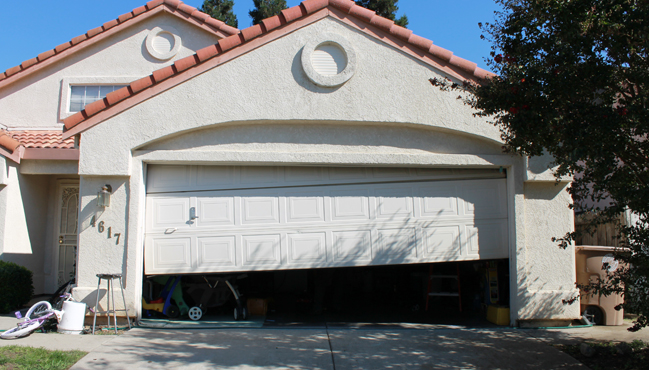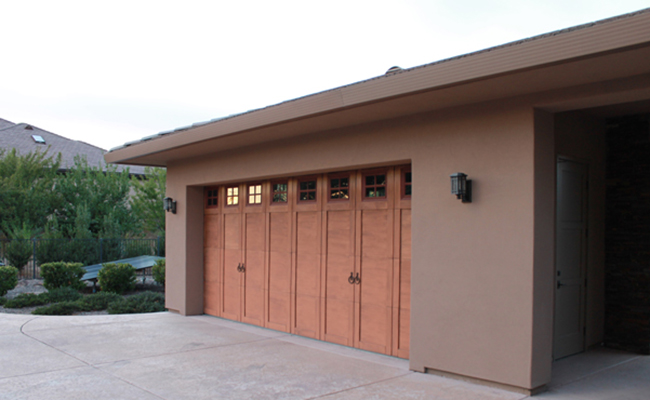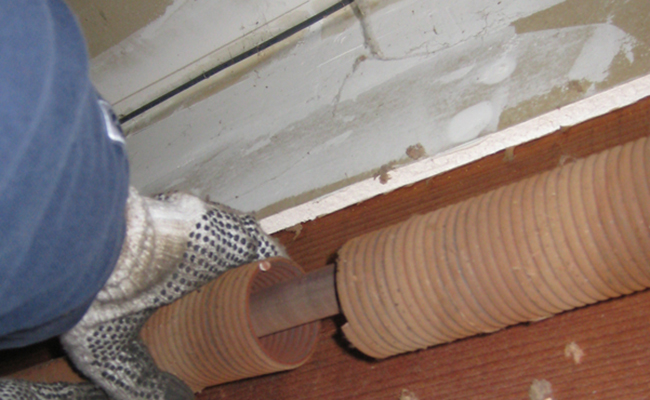Living in a coastal area comes with many benefits—stunning views, fresh ocean air, and a relaxed lifestyle. However, coastal living also presents unique challenges, particularly when it comes to maintaining your home. One of the most significant issues homeowners face in these regions is the corrosive effect of salt-laden air on exterior structures, including garage doors. Salt can cause metal components to rust, paint to peel, and wood to deteriorate more quickly than in inland areas. Choosing the right garage door is crucial for ensuring durability and longevity in such harsh conditions.
When selecting a garage door for a coastal home, it’s important to consider materials that can withstand the effects of salt, humidity, and wind. Investing in a salt-resistant garage door will not only enhance the aesthetic appeal of your home but also reduce maintenance costs and extend the door’s lifespan.
Material Considerations for Coastal Garage Doors
The material of your garage door plays a pivotal role in its ability to resist salt corrosion and withstand coastal weather conditions. Here are some of the best materials to consider:
- Aluminum: Aluminum garage doors are a popular choice for coastal areas because aluminum is naturally resistant to rust and corrosion. Lightweight yet durable, aluminum doors are less likely to suffer from the rusting and pitting that can affect steel doors in salty environments. Additionally, aluminum doors can be coated with a powder finish to further enhance their resistance to corrosion and provide a range of color options.
- Fiberglass: Fiberglass garage doors are another excellent option for coastal homes. Fiberglass is highly resistant to salt, moisture, and UV rays, making it an ideal choice for harsh coastal climates. These doors are also lightweight and low-maintenance, requiring only occasional cleaning to keep them looking good. Fiberglass doors can be designed to mimic the appearance of wood, offering aesthetic appeal without the drawbacks of wood in a salty environment.
- Vinyl: Vinyl garage doors are known for their durability and resistance to salt and moisture. They are also resistant to dents and scratches, which makes them a great choice for busy households. Vinyl doors are low-maintenance and often come with insulated cores, which can help improve your home’s energy efficiency. However, vinyl doors typically offer fewer design options compared to other materials.
- Composite Wood: For homeowners who prefer the look of wood but need a material that can withstand coastal conditions, composite wood garage doors are an excellent choice. These doors are made from a combination of wood fibers and synthetic materials, giving them the appearance of wood with added resistance to rot, warping, and insect damage. Composite wood doors can be more expensive than other options, but they offer a balance of beauty and durability.
Protective Coatings and Finishes
In addition to selecting the right material, protective coatings and finishes play a vital role in safeguarding your garage door from the elements. Here are some options to consider:
- Powder Coating: Powder coating is a dry powder applied to metal surfaces and then baked on to create a hard, durable finish. This coating provides an additional layer of protection against salt and moisture, making it ideal for aluminum and steel garage doors. Powder-coated doors are available in various colors and finishes, allowing you to customize the look of your garage door while ensuring it remains protected.
- Marine-Grade Paint: If you prefer a painted garage door, opt for marine-grade paint, which is specifically designed to withstand harsh marine environments. This type of paint is highly resistant to salt, moisture, and UV rays, making it an excellent choice for coastal homes. Regular touch-ups and repainting can help maintain the door’s appearance and prolong its life.
- Galvanization: Steel garage doors can be galvanized to protect against rust. The galvanization process involves coating the steel with a layer of zinc, which acts as a barrier to prevent corrosion. While galvanized steel doors are more resistant to rust, they may still require regular maintenance and touch-ups to address any scratches or damage to the coating.
Wind-Resistant Features for Coastal Areas
Coastal areas are often subject to high winds, hurricanes, and storms, which can put significant strain on your garage door. Choosing a wind-resistant garage door is crucial for protecting your home during extreme weather events. Here are some features to look for:
- Wind Load Reinforcement: Wind load reinforcement involves strengthening the garage door to withstand high winds. This can include adding bracing or reinforcing the tracks, hinges, and rollers. Wind-rated garage doors are tested and certified to meet specific wind resistance standards, which vary depending on your location and local building codes.
- Impact-Resistant Glass: If your garage door includes windows, opt for impact-resistant glass. This type of glass is designed to withstand flying debris and strong winds, reducing the risk of breakage during a storm. Laminated glass or polycarbonate windows are excellent choices for coastal homes, providing both protection and natural light.
- Hurricane-Resistant Doors: In hurricane-prone areas, consider installing a hurricane-rated garage door. These doors are specifically engineered to withstand the pressures and impacts associated with hurricanes, providing enhanced protection for your home. Many hurricane-rated doors also come with reinforced panels and upgraded hardware to ensure they remain secure during severe weather.
Maintenance Tips for Coastal Garage Doors
Even with the right materials and protective coatings, regular maintenance is essential to keep your garage door in top condition in a coastal environment. Here are some tips:
- Regular Cleaning: Salt and moisture can accumulate on your garage door over time, leading to corrosion and damage. Regularly wash your garage door with fresh water and mild detergent to remove salt deposits. Pay special attention to the hardware, hinges, and tracks, where salt can accumulate and cause rust.
- Inspect and Lubricate Moving Parts: Regularly inspect the moving parts of your garage door, including the rollers, hinges, and tracks, for signs of wear and tear. Lubricate these parts with a silicone-based lubricant to prevent rust and ensure smooth operation.
- Check Seals and Weatherstripping: The seals and weatherstripping around your garage door help keep out moisture and salt air. Inspect these components regularly and replace them if they show signs of wear or damage. This will help protect your garage’s interior and prolong the life of your door.
Conclusion: Investing in the Right Garage Door for Coastal Living
Choosing the right garage door for a coastal area requires careful consideration of materials, protective coatings, and wind resistance features. By selecting a salt-resistant option and committing to regular maintenance, you can protect your investment and ensure that your garage door remains functional and attractive for years to come. Whether you opt for aluminum, fiberglass, vinyl, or composite wood, the key is to choose a door that can withstand the unique challenges of coastal living while enhancing the curb appeal and security of your home.








